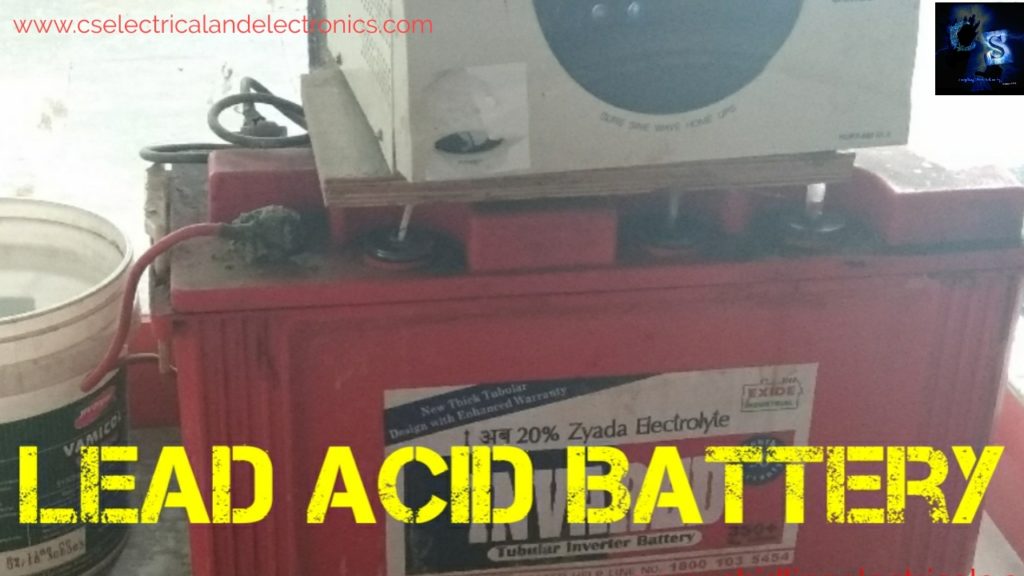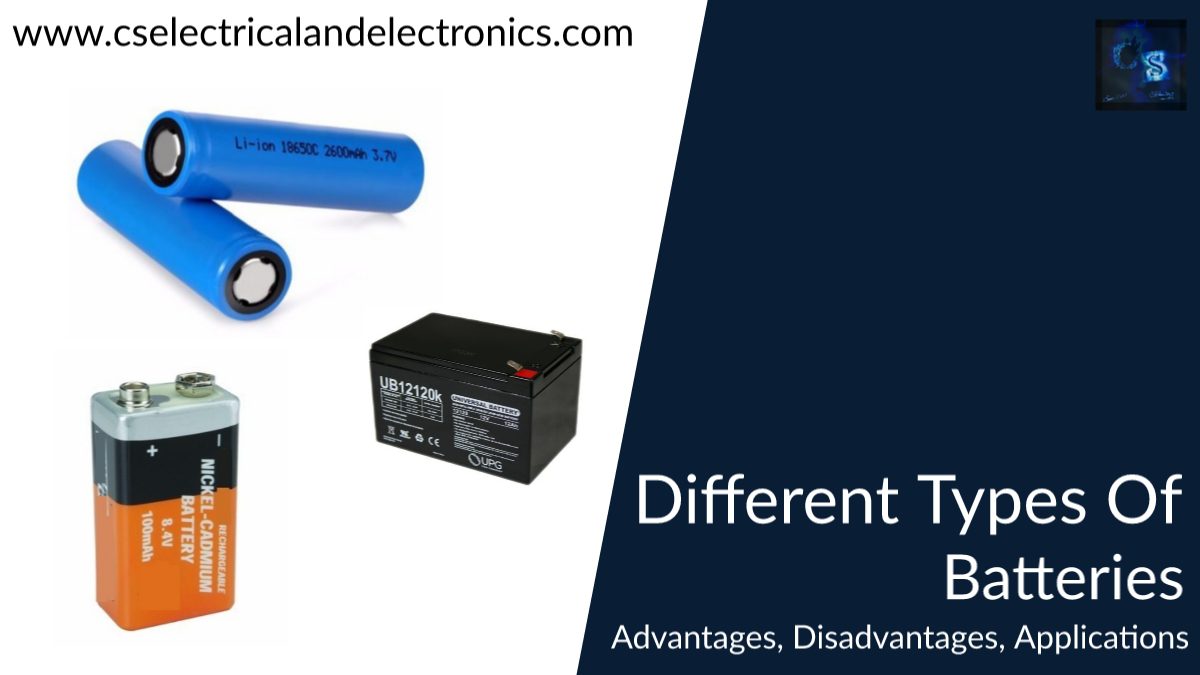Different Types Of Batteries, Advantages, Disadvantages, Applications
Hello guys, welcome back to our blog. This article will discuss different types of batteries, the advantages, disadvantages of all kinds of batteries, and the applications of all kinds of batteries.
If you have any electrical, electronics, and computer science doubts, then ask questions. You can also catch me on Instagram – CS Electrical & Electronics.
Also, read:
- Difference Between FOC AND DTC Control Methods For Motor
- Battery Management Systems Using Artificial Intelligence
- Top 12 Latest Technologies In The Power System That Will Change Future
Different Types Of Batteries
Types Of Batteries
Nowadays, batteries play a vital role in the industry, colleges, schools, hospitals, etc. to provide energy to the loads during a power cut. The type of batteries used is Lead-Acid, Nickel Cadmium(Ni-Cd), Nickel-Metal Hydride(Ni-MH), Lithium, and Lithium-ion.
Lead-Acid Battery

Advantages of Lead-Acid Battery
- It is one of the oldest rechargeable batteries.
- It is Rugged.
- It is safe, so used for domestic applications.
- The cost of a lead-acid battery is low.
- Good over a large temperature range.
Disadvantages of Lead-Acid Battery
- It has a low specific energy.
- It has a limited cycle life.
- It does not like full discharges.
- It must be stored with sufficient charge.
- The lead-acid battery produces gases and needs ventilation.
Applications of Lead-Acid Battery
- It is used in Vehicles.
- It is used in boats.
- It is used in UPS.
- It is also used in cars.
- It is used in wheelchairs.
Nickel Cadmium(Ni-Cd)
Advantages of Nickel Cadmium(Ni-Cd)
- It is Rugged.
- The Nickel Cadmium battery is durable.
- It is a good cold temperature performance battery.
Disadvantages of Nickel Cadmium Battery
- Cadmium is toxic.
- It is prompted by the regulatory restriction
Applications of Nickel Cadmium Battery
- It is used in the main aircraft batteries.
- It is used in UPS in cold environments
- It is also used in vehicles needing a high cycle life.
- In power tools (not in consumer products).
Nickel-Metal Hydride(Ni-MH)
Advantages of Nickel-Metal Hydride(Ni-MH)
- It has a 40% higher specific energy than NiCd.
- The Nickel-Metal Hydride is mild toxicity.
Disadvantages of Nickel-Metal Hydride(Ni-MH)
- It is not as rugged as NiCd.
- It is more difficult to charge.
Applications Of Nickel-Metal Hydride(Ni-MH)
- It was used in hybrid vehicles but now it is being replaced with a Li-ion battery.
Lithium Batteries
There are two types of Lithium Batteries:
- Lithium (metallic)
- Lithium-ion (intercalated lithium compound)
Advantage Of Lithium Batteries
- Have higher energy and power density when compared to most battery chemistries.
- Self-discharge is very slow.
- The theoretical voltage of 4.1V.
- The energy density of 400 Wh/L.
- The energy efficiency of 80%.
- The power density of 800+ W/L.
Disadvantages of Lithium Batteries
- Lithium can be corroded, which results in a loss of active material.
- Lithium plating, generally caused at low temperatures or voltages causes a loss in lithium.
- Very high initial cost.
Applications Of Lithium Batteries
- Defense
- Aerospace
- Instrumentation
- Oil drilling
- Mobile phones
- Laptops
- Power tools
- Electric powertrains
This was about “Different Types Of Batteries“. I hope this article may help you all a lot. Thank you for reading.
Also, read:
- 10 Tips To Maintain Battery For Long Life, Battery Maintainance
- 10 Tips To Save Electricity Bills, Save Money By Saving Electricity
- 100 (AI) Artificial Intelligence Applications In The Automotive Industry
- 100 + Electrical Engineering Projects For Students, Engineers
- 1000+ Automotive Interview Questions With Answers
- 1000+ Control System Quiz, Top MCQ On Control System
- 1000+ Electrical Machines Quiz, Top MCQs On Electrical Machines
- 1000+ MATLAB Simulink Projects For MTech, Engineering Students

